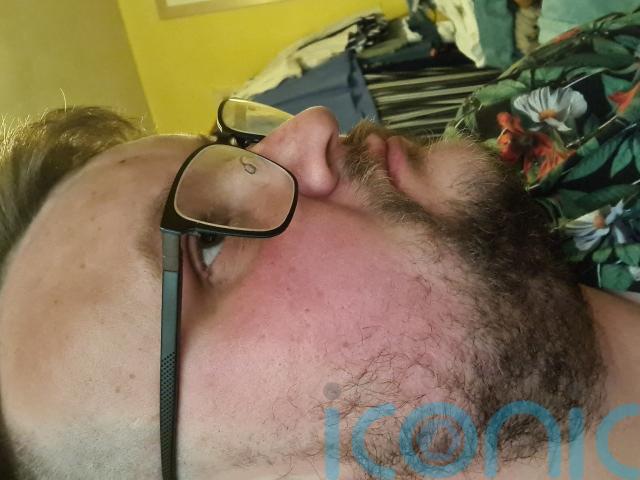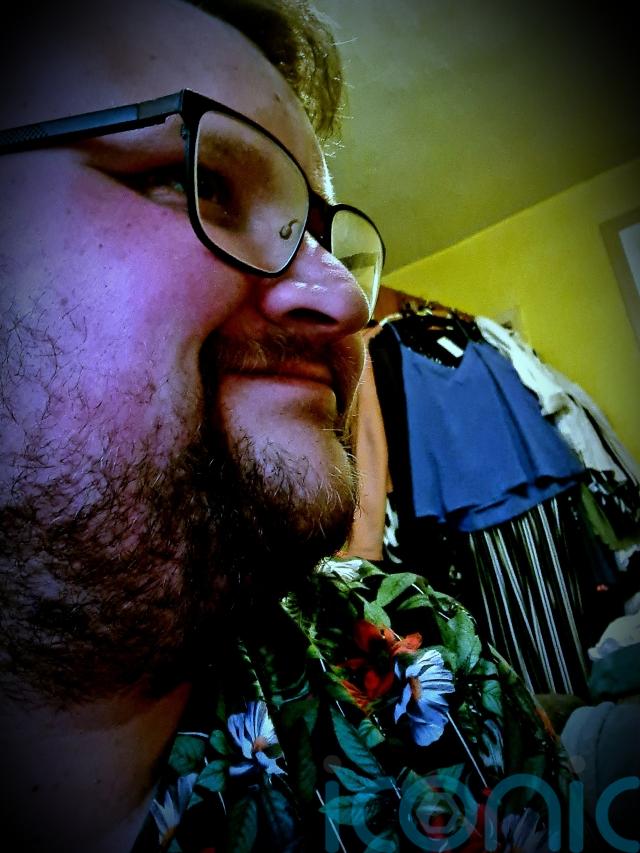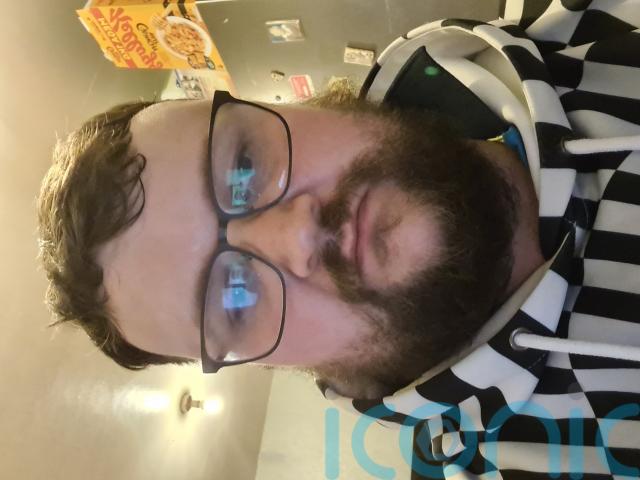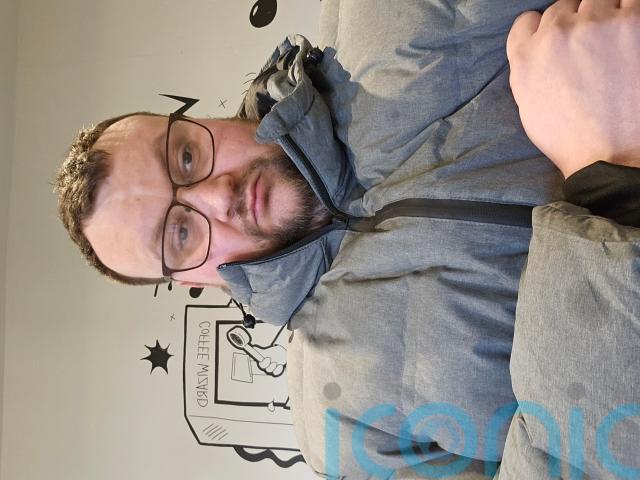A betting shop worker who spent £60,000 on gambling in the space of two years now works to help others find support and shares the message that “gambling should be seen as a health issue”.
Sam Perry, 33, from Bromsgrove in Worcestershire, began betting in 2018 after a friend introduced him to betting shops and casinos – after his first win, it “sparked something in (him)” and he slowly became fixated on it.
Sam soon got a job in a betting shop, which he does not wish to identify, and started to learn more and more about horse racing – often receiving tips from customers, and began gambling for four or five hours per day.
Over two years, Sam spent around £60,000 on gambling alone – he divided his monthly income into pots for rent, bills, food, his bus pass, and gambling, which meant he would often miss out on socialising with friends.
Sam, who is single and lives with his father, kept his gambling a secret from his loved ones and would plan his betting shop visits depending on where his dad would be, so he would not get caught.
Sam realised he was gambling problematically when he maxed out his overdraft in a few hours, spending more than £1,000, and reached out to Aquarius – a treatment provider within the National Gambling Support Network (NGSN), which is commissioned and funded by the charity GambleAware.
Since then, he has been in recovery for the last five years, and now helps others by working for Aquarius as an outreach gambling practitioner.
“When you work in a betting shop, you can’t really have your phone on so the only thing that you can really watch is horse racing or sporting events in general,” Sam told PA Real Life.
“You’ve got punters coming in asking for tips and all that on horses, and you start.
“Eventually, I got into a mindset where I did want to commit suicide due to sort of constant pressure.
“So if I’m losing, I’ve got no money left to prove myself.
“I thought people wouldn’t understand so I just locked myself in the room and just didn’t go out and talk to anyone.”
In 2018, Sam moved to Leicester and a friend introduced him to the world of gambling.
“I’m not blaming him at all for what happened to me and it’s usually a big win that usually gets you into it,” he said.

“If I put on about £10 and won £300 back, I would feel good, then that sort of sparked something in me.”
Sam began using slot machines and then started going to casinos, often using roulette tables, until he was betting every day at betting shops.
In 2019, he moved back to Bromsgrove and got a job in a betting shop, and his gambling began to escalate.
“I never thought in a million years that I could pick up a racing post and know what was going on,” he said.
“You can’t bet in the shop you work in so sometimes I’d walk to the one around the corner and place a bet there, and sometimes go with the regulars.”

It got to the point where Sam would gamble for four or five hours a day, and looking back, he thinks it acted as a distraction from his mental health issues and “the reality of the world”.
Sam was also diagnosed with autism as a child, and “likes focusing and concentrating on one thing” so believes this “fed” his gambling even more.
Sam gambled for two years in total, and over this period, spent around £60,000 – each month, he would pay his rent, put money aside for his bus pass, and the remainder of around £800 would go towards gambling.

This meant Sam missed out on socialising with friends and his gambling would “always take priority”.
“Luckily, I pay my dad rent every month, and that covers food and everything so I never had to go without – I’d just make a sandwich and take it to work, but I couldn’t go out with friends and didn’t have money for me other than gambling,” he added.
He also kept his gambling a secret from his loved ones – he would often ask his father where he was going for the day, so he could work out which betting shop he could go to without crossing paths with him.
If he was ever asked why he did not have much money, he would blame it on bills, when in reality, he was spending it on betting.
At the end of 2019, Sam began to realise he had a gambling disorder, and opened up to his loved ones, who were very supportive.

Sam said: “I think I realised I had a problem one day when I started using my card and I got a text on my phone saying insufficient funds and you’ve used up all your overdraft.
“So I spent about £1,150 on gambling that day – I remember walking back and it was just like a dagger in my heart honestly, I was hyperventilating, had cold sweats, and had nothing to show for the money I spent.”
The following day, Sam decided to seek help and contacted Aquarius – and within 24 hours, was able to have a phone call with them.
“They said to me they’re not going to snap their fingers and my addiction is going to go away – it’s a self-help thing,” he explained.
“There is a lot of willpower behind it – I had put blocks on my card for gambling.

“I found myself relapsing a few times going back to buying Fifa cards because they had a gambling aspect to them and I remember going to a shop one day and buying about £50 worth of lottery tickets, but you kind of realise a relapse isn’t a bad thing.
“It’s seen as a learning curve.
“Now, even if a friend says ‘I’ll bet you £1’ on something ridiculous, I just have to take myself out of the situation.”
Aquarius was able to help Sam understand his “addictive personality”, which led him to move towards the “safer side of gambling”.
So, in 2022, he began working for the safer gambling team at an online casino, and could soon see his gambling habits improving.

Since November 2023, Sam has been working for Aquarius, helping others with gambling addictions, which he has found “so rewarding”.
“Joining Aquarius was the final nail in the coffin – it made me want to stop and now I’ve gone from living that gambling lifestyle to helping other people through it,” he explained.
Sam has also taken part in a Gamble Aware campaign and thinks there should be less stigmatisation around gambling.
“Campaigns have enormous weight when it comes to changing public perceptions and should be reminding us that help is available and seeking it as a sign of strength, not weakness at all,” Sam said.
“Gambling should be seen as a health issue – it deserves the same attention and resources of other conditions, we mustn’t wait for the individual to hit rock bottom.
“When I worked in the betting shop, no one was trained on how to spot the signs.”
Looking back on his experiences, he said: “I used to think gambling would make me feel better than reality, but now I’ve found other things.
“I do lots of fishing, acting, joined the gym and I find entertainment through other ways.
“A lot of people don’t see gambling as a serious problem, but it can be crushing to go through.
“I’d encourage anyone who thinks they might have a problem to talk to someone about it.”
Sam Perry is supporting GambleAware’s latest campaign to prevent gambling harm by reducing stigma, which is one of biggest barriers to people seeking support. If you’re worried about how gambling makes you feel, GambleAware can help.
For free and confidential advice, tools and support, search GambleAware or contact the National Gambling Helpline, available 24/7, on 0808 8020 133.
For additional support, visit – begambleaware.org and samaritans.org

